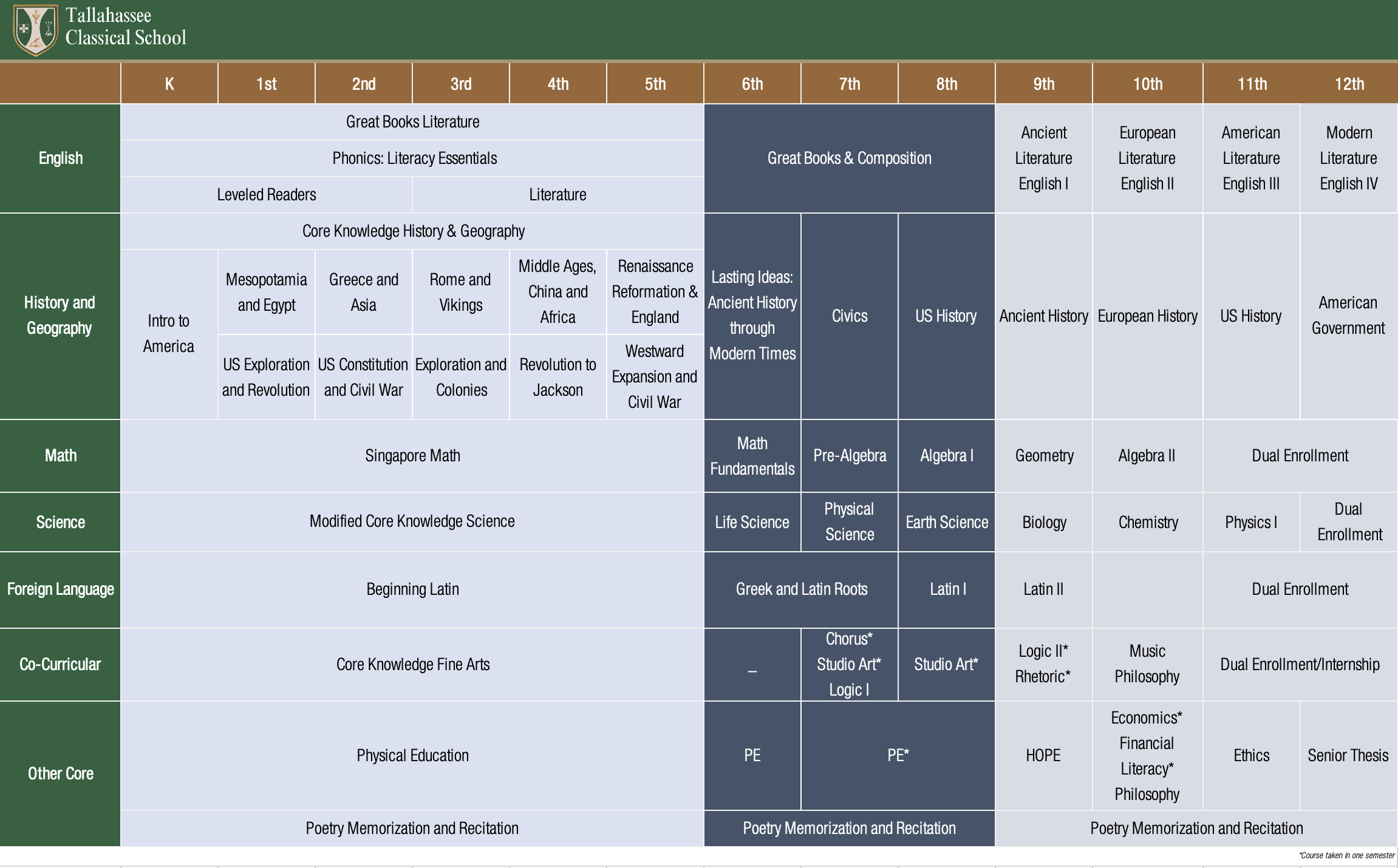Classical education is the study of the traditional liberal arts and sciences, which cultivates wisdom and virtue through the pursuit of truth, goodness and beauty. The word “liberal” comes from the Latin word “libertas” meaning “freedom.” The American Association for the Advancement of Science describes a liberal education this way: “…liberal education produces persons who are open-minded; conscious of their opinions and judgments; reflective of their actions; and aware of their place in the social and natural worlds.”
A classical education is language-focused where learning is achieved through written and spoken words. Numerical literacy is an essential form of language, learned through the precise study of mathematical patterns and relationships. Subjects are interrelated; not studied in isolation from one another but instead scholars are taught the connections between the disciplines. History is studied in chronological order as the backbone structure for learning beginning with ancients and progressing forward to the moderns in history, science, literature, art, and music.
A classical education guides scholars towards analytical inquiry and logical thinking. Scholars learn to aggregate information across various disciplines, develop effective communication skills, and become virtuous citizens and life-long learners.
Classical Grammar School houses Kindergarten through Sixth Grade, where scholars are provided a solid foundation of basic skills and knowledge for academic and personal success. Here we also set the foundations of moral and civic virtue, cultivate studious habits, respect for the natural and human world, and the dissemination of ideas necessary for a democracy.
In Grammar School, scholars are taught explicit phonics and grammar, penmanship and cursive, classic literature, and study skills, as well as systematically introduced to knowledge in math, science, geography, history, and the arts.
Classes in the humanities, the sciences, and the arts will be grounded in several research-based curricula/programs. These include the Core Knowledge Sequence, which is a research-based curriculum using a specific, grade-by-grade core of common learning that aligns with the Florida State Standards; Access Literacy’s adaptation to the Riggs Institute‘s The Writing & Spelling Road to Reading & Thinking, a multi-sensory, brain-based approach for teaching explicit phonics, reading and language arts; Singapore Math, a conceptual approach to mathematical skill building and problem-solving; and science with a hands-on approach to scientific inquiry and an emphasis on fundamentals. The school uses curricula that rely on direct instruction methods to impart knowledge efficiently and effectively.
Logic & Rhetoric School houses scholars from Seventh through Twelfth grade and follows a traditional liberal arts and sciences sequence, with the primary focus on literature, mathematics, history, and science.
As scholars progress into these grades, teachers will support them as they grapple with difficult arguments through documents and great literary works from a wide variety of cultures and philosophies. Rhetoric school scholars will use textbooks as reference tools and primary sources as they engage in researching unfamiliar topics and communicate regularly through written compositions, seminars, and debates. Scholars who graduate from Tallahassee Classical School will be trained in logic, rhetoric, critical thinking, and advanced writing.
